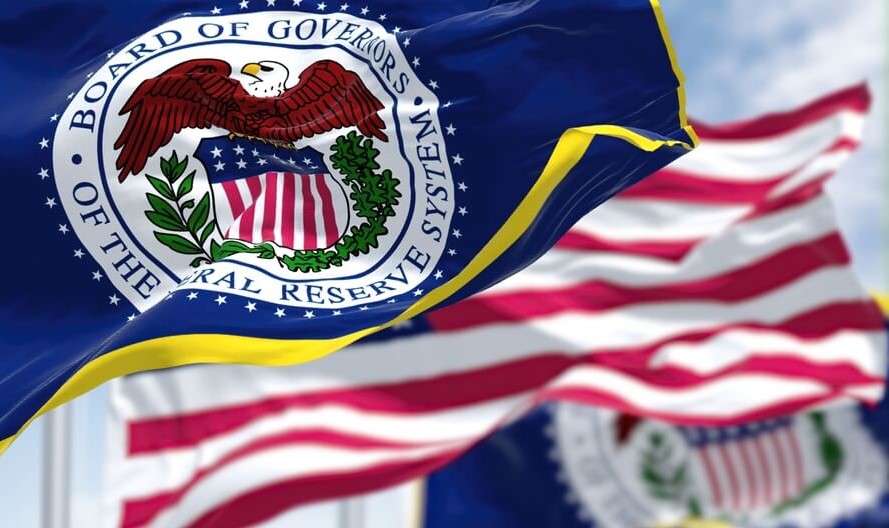After ambiguity preceded its regular meeting about whether it would complete its tightening policy or suspend it after the banking crisis in the United States, the Federal Reserve decided to raise the overnight main interest rates by 25 basis points to a range between 4.75 percent and five percent. This is the highest level since 2006.
However, the Federal Open Market Committee of the Federal Reserve, which takes monetary policy decisions, indicated that the Federal Reserve is about to temporarily stop raising interest rates in light of the recent turmoil in financial markets, which was stimulated by the collapse of the “Silicon Valley Bank” (SVB) and Signature.
It said future increases are not guaranteed and will depend largely on incoming data.
According to the statement issued at the end of a two-day meeting, the committee “will closely monitor the information received and assess the implications for monetary policy… The committee expects that some firm additional policies may be appropriate in order to reach a monetary stance that is sufficiently restrictive to return inflation to normal or 2 percent over time.”
It is noteworthy that these carefully selected phrases are considered a departure from previous data, which indicated that “continued increases” would be appropriate to reduce inflation.
The softer tone came amid a banking crisis that has raised concerns about the stability of the system. In this context, the statement referred to the possible impact of recent events.
Read: Only two options for the Fed: raising or fixing interest rates
“The US banking system is healthy and resilient… Recent developments are likely to lead to tighter credit conditions for households and businesses and affect economic activity, employment, and inflation. The extent of these repercussions is uncertain. The committee remains very attentive to inflation risks,” the statement said.
Despite warnings about the potential effects of the banking crisis, the committee unanimously approved the rate hike.
The Federal Reserve expected that the rate of inflation this year will be slightly higher than it expected last December, at 3.6 percent compared to 3.5 percent, while it anticipated the GDP to decline by 0.4 percent compared to 0.5 percent.
Jerome Powell
After the meeting, the head of the Federal Reserve said, “Inflation remains high and we remain committed to reducing it to 2 percent,” stressing that measures to reduce inflation will take a long time.
He added, “Our basic expectations do not refer to a rate cut this year,” rather he said, “We will raise interest rates at a greater rate if we need to.”
Emphasizing that the funds of depositors in the United States are “safe”, he reminded that the US banking system is solid, stressing that the Federal Reserve is “intended to take lessons” from what happened. “We will continue to closely monitor the situation… and we are ready to use all available tools to keep this money safe,” he added.
Powell warned that “the problems of individual banks could threaten the banking system if not dealt with.”
He touched on the acquisition of Credit Suisse by UBS in Switzerland, saying, “The acquisition of Credit Suisse was apparently a positive result.”
US Treasury Secretary Janet Yellen told a Senate committee earlier Wednesday that “the US banking system is solid,” and that “the recent measures taken by the federal government have demonstrated our firm commitment to taking the necessary steps to ensure the security of depositors’ funds.”
“We must be clear that the shareholders and creditors of bankrupt banks are not protected by the government. No loss will be borne by taxpayers,” she added.
Gulf central banks
Soon after the Federal Reserve’s decision, Gulf central banks caught up with it.
The Saudi Central Bank (SAMA) announced raising the reverse repurchase interest rate by 25 basis points. It said that it had raised the repurchase rate (repo) and the reverse repo rate (reverse repo) to 5.5 percent and five percent, respectively.
The Qatar Central Bank also announced a 25 basis point hike in interest rates, effective Thursday. The deposit interest rate, the lending interest rate, and the repo rate were raised by 25 basis points to 5.25 percent, 5.75 percent, and 5.5 percent, respectively.
The Central Bank of Bahrain decided to raise the interest rate on deposits for the month by 25 basis points. The bank said on Twitter that the interest rate on one-week deposits rose to 5.75 percent from 5.5 percent, while the one-night deposit rate rose to 5.5 percent from 5.25 percent. It added that the interest rate on one-month deposits rose to 6.5 percent from 6.25 percent.
For more on markets, click here.








